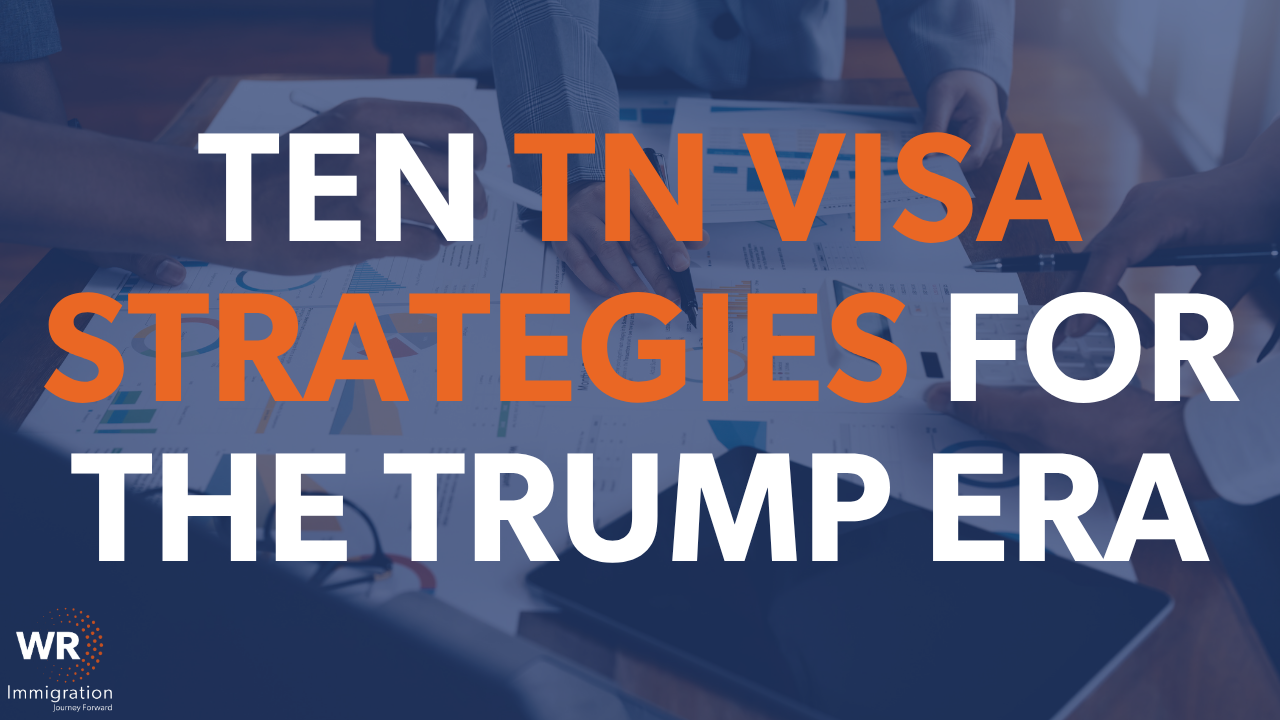As U.S. immigration policies shift toward stricter enforcement, HR teams and individuals applying for TN visas/status (under NAFTA/USMCA) need to be more prepared than ever. With the 2026 review of the USMCA trade agreement on the horizon and increasing scrutiny at U.S. borders/ports of entry and U.S. consular posts, here are ten key updates and strategies for today’s tougher TN environment.
1. More Denials at the Border/Ports of Entry and U.S. Consular Posts: Be Thorough and Clear
What’s happening: More TN visa applications are being denied—especially when job titles don’t clearly match the role or the applicant’s degree is too general.
What to do:
- Make sure job titles and duties clearly match a listed TN profession.
- Avoid vague job descriptions.
- If your degree isn’t a perfect match, gather extra documents to support your qualifications.
2. Changing Employers? Follow the Rules Carefully
What’s happening: TN status is tied to your employer. Changing jobs—even within the same company—can possibly raise red flags.
What to do:
- Canadians can apply at the border (including a new offer letter).
- Mexicans usually need to apply for a new visa (or file a change of employer application with USCIS).
- HR should prepare new offer letters and confirm job duties align with TN categories.
3. “Risky” TN Professions Are Under the Microscope
What’s happening: Some job categories are facing increased scrutiny —especially Management Consultants and Scientific Technicians.
What to do:
- Be specific: include contracts, organizational charts, and supervisor info.
- Use expert letters if the job duties or relationships are not clear.
4. Foreign Degrees Must Be Clearly Relevant
What’s happening: If your degree is not an exact match for the TN role, your application may be denied.
What to do:
- Use trusted degree evaluation companies.
- Include transcripts or course lists when needed.
- Avoid relying on “related” degrees unless the link is well-documented.
5. Denied at the Border? Know the Risks
What’s happening: Applicants who are denied might be able to withdraw their application for admission — or worse, face expedited removal, which can bar reentry for years.
What to do:
- Prepare thoroughly before heading to the border.
- Know your rights.
- Document everything and seek legal help if things go wrong.
6. No Wage Rule—But Pay Still Matters
What’s happening: There’s no official minimum salary for TN visas, but if the pay seems too low, officers may doubt the legitimacy of the role and deny.
What to do:
- Offer competitive, professional-level pay.
- HR can reference salary data (like O*NET) to justify the compensation.
7. Support Letters Are More Important Than Ever
What’s happening: Especially in gray areas, like IT jobs or unusual degrees, TN approval often depends on how well your supporting documents explain the connection between the job and your qualifications.
What to do:
- Ask supervisors or experts to write letters explaining your role and qualifications.
- Be specific and honest—vague or exaggerated claims can backfire.
8. USMCA Renegotiation Could Affect Future TNs
What’s happening: The U.S., Canada, and Mexico will review the USMCA trade deal in 2026. If they don’t all agree to renew it, TN visas could be impacted in the years ahead.
What to do:
- Employers should track which employees hold TN status and consider other and long-term options (like H-1Bs, L-1, and green cards).
- TN workers should monitor USMCA developments and be ready to adapt.
9. Inconsistent Decisions: Consular Posts vs. CBP vs. USCIS
What’s happening: Rules aren’t always applied the same way between U.S. consular posts in Mexico, CBP officers, and USCIS.
What to do:
- Choose where to apply carefully.
- HR and applicants should check recent trends at specific locations before filing.
10. Watch Your Tech: Data Checks Are Getting Stricter
What’s happening: U.S. immigration officials are increasingly checking systems and documents for inconsistencies, metadata, and outdated records.
What to do:
- Don’t reuse old documents without thorough review.
- HR teams should ensure digital systems are secure and websites are up to date.
Final Thoughts
In this new political and regulatory climate, the TN visa process is no longer routine. It requires detailed preparation, strategic thinking, and clear communication between HR and international talent. Whether you’re an applicant or HR leader, taking proactive steps today can help you avoid issues tomorrow.
Need Help?
We focus in helping HR departments and individuals navigate the TN process confidently and strategically. Reach out to us for personalized support.


